These are the classic works of literature and narrative non-fiction you didn’t read in high school! Immerse yourself in our Core Collection of Alternate Classics from around the world and across the centuries.

First published in 1958, this novel tells the story of Okonkwo, the leader of an Igbo (Ibo) community who is banished for accidentally killing a clansman. The novel covers the seven years of his exile to his return, providing an inside view of the intrusion of white missionaries and colonial government into tribal Igbo society in the 1890s.

Kathy Acker pushed literary boundaries with a vigor and creative fire that made her one of America's preeminent experimental writers and her books cult classics. Now Amy Scholder and Dennis Cooper have distilled the incredible variety of Acker's body of work into a single volume that reads like a communique from the front lines of late-twentieth-century America. Acker was a literary pirate whose prodigious output drew promiscuously from popular culture, the classics of Western civilization, current events, and the raw material of her own life.

A young woman from Nigeria leaves behind her home and her first love to start a new life in America, only to find her dreams are not all she expected.

Presenting two of Anna Akhmatova’s best-known works that represent the poet at full maturity, and that most trenchantly process the trauma she and others experienced living under Stalin’s regime.

This singular collection of five stories takes the reader inside Nigeria, Benin, and Ethiopia, revealing in beautiful prose the harsh consequences for children of life in Africa.

Ryūnosuke Akutagawa (1892-1927) is one of Japan’s foremost stylists - a modernist master whose short stories are marked by highly original imagery, cynicism, beauty and wild humour. ‘Rashōmon’ and ‘In a Bamboo Grove’ inspired Kurosawa’s magnificent film and depict a past in which morality is turned upside down, while tales such as ‘The Nose’, ‘O-Gin’ and ‘Loyalty’ paint a rich and imaginative picture of a medieval Japan peopled by Shoguns and priests, vagrants and peasants. And in later works such as ‘Death Register’, ‘The Life of a Stupid Man’ and ‘Spinning Gears’, Akutagawa drew from his own life to devastating effect, revealing his intense melancholy and terror of madness in exquisitely moving impressionistic stories.

Imparting comfort while reading the names of missing people to her war-ravaged listeners, radio host Norma finds her life irrevocably changed when a young boy from a remote jungle village provides a connection to her long-missing husband.

Prince Among Slaves, the only full account of Ibrahima's life, pieced together from first-person accounts and historical documents gathered on three continents. It is not only a remarkable story, but also the story of a remarkable man, who endured the humiliation of slavery without ever losing his dignity or his hope for freedom. This thirtieth anniversary edition, which will be released to coincide with a major documentary being aired on Ibrahima's life, has been updated to include material discovered since the original printing, a fuller presentation and appreciation of other African Muslims in American slavery-Ibrahima's contemporaries-and a review of new and important literature and developments in the field.

In one of the most important and beloved Latin American works of the twentieth century, Isabel Allende weaves a luminous tapestry of three generations of the Trueba family, revealing both triumphs and tragedies. Here is patriarch Esteban, whose wild desires and political machinations are tempered only by his love for his ethereal wife, Clara, a woman touched by an otherworldly hand. Their daughter, Blanca, whose forbidden love for a man Esteban has deemed unworthy infuriates her father, yet will produce his greatest joy: his granddaughter Alba, a beautiful, ambitious girl who will lead the family and their country into a revolutionary future.

It is November 25, 1960, and the bodies of three beautiful, convent-educated sisters have been found near their wrecked Jeep at the bottom of a 150-foot cliff on the north coast of the Dominican Republic. El Caribe, the official newspaper, reports their deaths as an accident. It does not mention that a fourth sister lives. Nor does it explain that the sisters were among the leading opponents of Gen. Raphael Leonidas Trujillo's dictatorship. It doesn't have to. Everyone knows of Las Mariposas - "The Butterflies."

Ultima, a curandera, one who cures with herbs and magic, comes to Antonio Marez's New Mexico family when he is six years old, and she helps him discover himself in the magical secrets of the pagan past.

The author and poet recalls the anguish of her childhood in Arkansas and her adolescence in northern slums.

Rooted in Gloria Anzaldua's experience as a Chicana, a lesbian, an activist, and a writer, the essays and poems in this volume profoundly challenged, and continue to challenge, how we think about identity. Borderlands / La Frontera remaps our understanding of what a "border" is, presenting it not as a simple divide between here and there, us and them, but as a psychic, social, and cultural terrain that we inhabit, and that inhabits all of us. This twenty-fifth anniversary edition features a new introduction by scholars Norma Cantu (University of Texas at San Antonio) and Aida Hurtado (University of California at Santa Cruz) as well as a revised critical bibliography.

Considered by Rumi to be 'the master' of Sufi mystic poetry, Attar is best known for his epic poem The Conference of the Birds, a magnificent allegorical tale about the soul's search for meaning. The poem recounts the perilous journey of the world's birds to the faraway peaks of Mount Qaf--a mythical mountain that wraps around the earth--in search of their king, the mysterious Simorgh. Attar's beguiling anecdotes and humor intermingle the sublime with the mundane, the spiritual with the worldly, and the religious with the metaphysical. Reflecting the entire evolution of Sufi mystic tradition, The Conference of the Birds models the soul's escape from the mind's rational embrace. Wolpé re-creates the intense beauty of the original Persian in contemporary English verse and poetic prose, capturing for the first time the grace and timeless wisdom of Attar's complete masterwork for modern readers.

Based upon the author's firsthand experience while working with refugee farmers in the Farm Security Administration camps of California. Born in 1907 in an Otoe Indian community in the Oklahoma Territory, Babb joined the FSA camp in California in 1938 to help uprooted farmers. She submitted the manuscript for this book in 1939, but it was shelved because of John Steinbeck's 1939 best-selling novel, The Grapes of Wrath.

Contains a letter to Baldwin's nephew on the 100th anniversary of the Emancipation Proclamation. Also describes his childhood, views on Black Muslims, and his visions.

Giovanni's Room is set in the Paris of the 1950s, where a young American expatriate finds himself caught between his repressed desires and conventional morality. David has just proposed marriage to his American girlfriend, but while she is away on a trip he becomes involved in a doomed affair with a bartender named Giovanni. With sharp, probing insight, James Baldwin's classic narrative delves into the mystery of love and tells an impassioned, deeply moving story that reveals the unspoken complexities of the human heart.

In 1995, Jean-Dominique Bauby was the editor in chief of French Elle, the father of two young children, a forty-three-year-old man known and loved for his wit, his style, and his impassioned approach to life. By the end of the year he was also the victim of a rare kind of stroke to the brain stem. After twenty days in a coma, Bauby awoke into a body that had all but stopped working: only his left eye functioned, allowing him to see and, by blinking, to make clear that his mind was unimpaired. Almost miraculously, he was soon able to express himself in the richest detail, blinking to select letters one by one as a special alphabet was slowly recited to him, over and over again. In the same way, he was eventually able to compose this extraordinary book.

In honor of the twenty-fifth anniversary of the ground-breaking comic strip series, Dykes to Watch Out For brings together a new collection of cartoons recounting the lives and loves of a diverse group of lesbian friends, in a volume that features selections from eleven previous volumes, as well as sixty strips never before published in book form.

New Year’s Eve, 1975: Arturo Belano and Ulises Lima, founders of the visceral realist movement in poetry, leave Mexico City in a borrowed white Impala. Their quest: to track down the obscure, vanished poet Cesárea Tinajero. A violent showdown in the Sonora desert turns search to flight; twenty years later Belano and Lima are still on the run.

Dreamtigers has been heralded as one of the literary masterpieces of the twentieth century by Mortimer J. Adler, editor of Great Books of the Western World. It has been acknowledged by its author as his most personal work. Composed of poems, parables, and stories, sketches and apocryphal quotations, Dreamtigers at first glance appears to be a sampleralbeit a dazzling one of the master's work. Upon closer examination, however, the reader discovers the book to be a subtly and organically unified self-revelation.

In Gender Outlaws, Bornstein, together with writer, raconteur, and theater artist S. Bear Bergman, collects and contextualizes the work of this generation's trans and genderqueer forward thinkers — new voices from the stage, on the streets, in the workplace, in the bedroom, and on the pages and websites of the world's most respected mainstream news sources. Gender Outlaws includes essays, commentary, comic art, and conversations from a diverse group of trans-spectrum people who live and believe in barrier-breaking lives.

Relates the experiences of a Native American woman who grew up on a reservation and joined in the revolution for Native American rights during the 1960s and 1970s.

On August 29, 2005, Hurricane Katrina's monstrous winds and surging water overwhelmed the protective levees around low-lying New Orleans, Louisiana. Eighty percent of the city flooded, in some places under twenty feet of water. Property damages across the Gulf Coast topped $100 billion. One thousand eight hundred and thirty-three people lost their lives. The riveting tale of this historic storm and the drowning of an American city is one of selflessness, heroism, and courage -- and also of incompetence, racism, and criminality. Don Brown's kinetic art and as-it-happens narrative capture both the tragedy and triumph of one of the worst natural disasters in American history. A portion of the proceeds from this book has been donated to Habitat for Humanity New Orleans.

A landmark coming-of-age novel that launched the career of one of this country's most distinctive voices. Rita Mae Brown tells the story of Molly Bolt, the adoptive daughter of a dirt-poor Southern couple who boldly forges her own path in America. With her startling beauty and crackling wit, Molly finds that women are drawn to her wherever she goes-- and she refuses to apologize for loving them back.

The author describes her experiences as a young Vietnamese immigrant, highlighting her family's move from their war-torn home to the United States in graphic novel format.

One hot spring, the devil arrives in Moscow, accompanied by a retinue that includes a beautiful naked witch and an immense talking black cat with a fondness for chess and vodka. The visitors quickly wreak havoc in a city that refuses to believe in either God or Satan. But they also bring peace to two unhappy Muscovites: one is the Master, a writer pilloried for daring to write a novel about Christ and Pontius Pilate; the other is Margarita, who loves the Master so deeply that she is willing literally to go to hell for him. What ensues is a novel of inexhaustible energy, humor, and philosophical depth.

The first science fiction written by a black woman, Kindred has become a cornerstone of black American literature. This combination of slave memoir, fantasy, and historical fiction is a novel of rich literary complexity. Having just celebrated her 26th birthday in 1976 California, Dana, an African-American woman, is suddenly and inexplicably wrenched through time into antebellum Maryland. After saving a drowning white boy there, she finds herself staring into the barrel of a shotgun and is transported back to the present just in time to save her life. During numerous such time-defying episodes with the same young man, she realizes the challenge she’s been given...

Beloved by generations of Chinese readers, The Dream of the Red Chamber is China's touching equivalent of the Romeo & Juliet story. In addition to being a tale of star-crossed lovers, this epic novel also follows the story of five generations of one Chinese family giving modern readers a multi-layered dramatic plot to get lost in at the same time as it offers up key insights into Chinese culture.

Joe Kavalier, a young Jewish artist who has also been trained in the art of Houdini-esque escape, has just smuggled himself out of Nazi-invaded Prague and landed in New York City. His Brooklyn cousin Sammy Clay is looking for a partner to create heroes, stories, and art for the latest novelty to hit America - the comic book. Drawing on their own fears and dreams, Kavalier and Clay create the Escapist, the Monitor, and Luna Moth, inspired by the beautiful Rosa Saks, who will become linked by powerful ties to both men. With exhilarating style and grace, Michael Chabon tells an unforgettable story about American romance and possibility.

A Two-Spirit Journey is Ma-Nee Chacaby's extraordinary account of her life as an Ojibwa-Cree lesbian. From her early, often harrowing memories of life and abuse in a remote Ojibwa community riven by poverty and alcoholism, Chacaby's story is one of enduring and ultimately overcoming the social, economic, and health legacies of colonialism. As a child, Chacaby learned spiritual and cultural traditions from her Cree grandmother and trapping, hunting, and bush survival skills from her Ojibwa stepfather. She also suffered physical and sexual abuse by different adults, and in her teen years became alcoholic herself. At twenty, Chacaby moved to Thunder Bay with her children to escape an abusive marriage. Abuse, compounded by racism, continued, but Chacaby found supports to help herself and others. Over the following decades, she achieved sobriety; trained and worked as an alcoholism counsellor; raised her children and fostered many others; learned to live with visual impairment; and came out as a lesbian. In 2013, Chacaby led the first gay pride parade in Thunder Bay. Ma-Nee Chacaby has emerged from hardship grounded in faith, compassion, humour, and resilience. Her memoir provides unprecedented insights into the challenges still faced by many Indigenous people.

A Chinese woman chronicles the struggle of her grandmother, her mother, and herself to survive in a China torn apart by wars, invasions, revolution, and continuing upheaval, from 1907 to the present.

When first published in 1899, The Awakening shocked readers with its honest treatment of female marital infidelity. Audiences accustomed to the pieties of late Victorian romantic fiction were taken aback by Chopin's daring portrayal of a woman trapped in a stifling marriage, who seeks and finds passionate physical love outside the confines of her domestic situation.

Acclaimed by critics, beloved by readers of all ages, taught everywhere from inner-city grade schools to universities across the country, and translated all over the world, The House on Mango Street is the remarkable story of Esperanza Cordero. Told in a series of vignettes – sometimes heartbreaking, sometimes deeply joyous–it is the story of a young Latina girl growing up in Chicago, inventing for herself who and what she will become. Few other books in our time have touched so many readers

For Ta-Nehisi Coates, history has always been personal. At every stage of his life, he's sought in his explorations of history answers to the mysteries that surrounded him -- most urgently, why he, and other black people he knew, seemed to live in fear. What were they afraid of? In Tremble for My Country, Coates takes readers along on his journey through America's history of race and its contemporary resonances through a series of awakenings -- moments when he discovered some new truth about our long, tangled history of race, whether through his myth-busting professors at Howard University, a trip to a Civil War battlefield with a rogue historian, a journey to Chicago's South Side to visit aging survivors of 20th century America's 'long war on black people,' or a visit with the mother of a beloved friend who was shot down by the police. In his trademark style -- a mix of lyrical personal narrative, reimagined history, essayistic argument, and reportage -- Coates provides readers a thrillingly illuminating new framework for understanding race: its history, our contemporary dilemma, and where we go from here.

The year is 1797, and the kingdom of Segu is flourishing, fed by the wealth of its noblemen and the power of its warriors. The people of Segu, the Bambara, are guided by their griots and priests; their lives are ruled by the elements. But even their soothsayers can only hint at the changes to come, for the battle of the soul of Africa has begun. From the east comes a new religion, Islam, and from the West, the slave trade. Segu follows the life of Dousika Traore, the king's most trusted advisor, and his four sons, whose fates embody the forces tearing at the fabric of the nation. There is Tiekoro, who renounces his people's religion and embraces Islam; Siga, who defends tradition, but becomes a merchant; Naba, who is kidnapped by slave traders; and Malobali, who becomes a mercenary and halfhearted Christian. Based on actual events, Segu transports the reader to a fascinating time in history, capturing the earthy spirituality, religious fervor, and violent nature of a people and a growing nation trying to cope with jihads, national rivalries, racism, amid the vagaries of commerce.

The harrowing, but triumphant story of Ellen Johnson Sirleaf, leader of the Liberian women’s movement, winner of the Nobel Peace Prize, and the first democratically elected female president in African history.

In A Body, Undone, Crosby puts into words a broken body that seems beyond the reach of language and understanding. She writes about a body shot through with neurological pain, disoriented in time and space, incapacitated by paralysis and deadened sensation. To address this foreign body, she calls upon the readerly pleasures of narrative, critical feminist and queer thinking, and the concentrated language of lyric poetry. Working with these resources, she recalls her 1950s tomboy ways in small-town, rural Pennsylvania, and records growing into the 1970s through radical feminism and the affirmations of gay liberation.

Nervous Conditions brings to the politics of decolonization theory the energy of women's rights. By now a classic in African literature and Black women's literature internationally, Nervous Conditions is a must for anyone wanting to understand voice, memory, and coming of age for young Black women in Africa.

At the age of twelve, Sophie Caco is sent from the impoverished village of Croix-des-Rosets to New York to be reunited with her mother she barely remembers. There she discovers secrets that no child should ever know and where she gains a legacy of shame that can only be healed when she returns to Haiti, to the woman who first reared her. What ensues is a passionate journey through a landscape charged with the supernatural and scarred by political violence, in a novel that bears witness to the traditions, suffering, and wisdom of an entire people.

Osamu Dazai's No Longer Human, this leading postwar Japanese writer's second novel, tells the poignant and fascinating story of a young man who is caught between the breakup of the traditions of a northern Japanese aristocratic family and the impact of Western ideas. In consequence, he feels himself "disqualified from being human" (a literal translation of the Japanese title).

Juana Inésa de la Cruz, a Mexican nun, wrote this essay which is a defense of the right of women to be engaged in intellectual work. Her writings brought her into conflict with the Church.

A mysterious disaster has stricken the midwestern American city of Bellona, and its aftereffects are disturbing: a city block burns down and is intact a week later; clouds cover the sky for weeks, then part to reveal two moons; a week passes for one person when only a day passes for another. The catastrophe is confined to Bellona, and most of the inhabitants have fled. But others are drawn to the devastated city, among them the Kid, a white/American Indian man who can't remember his own name. The Kid is emblematic of those who live in the new Bellona, who are the young, the poor, the mad, the violent, the outcast--the marginalized.

The author observes, "The Indian world has changed so substantially since the first publication of this book that some things contained in it seem new again." Indeed, it seems that each generation of whites and Indians will have to read and reread Vine Deloria’s Manifesto for some time to come, before we absorb his special, ironic Indian point of view and what he tells us, with a great deal of humor, about U.S. race relations, federal bureaucracies, Christian churches, and social scientists. This book continues to be required reading for all Americans, whatever their special interest.

In this radiant, highly anticipated debut, a cast of unforgettable women battle for independence while a maelstrom of change threatens their Jamaican village. Capturing the distinct rhythms of Jamaican life and dialect, Nicole Dennis- Benn pens a tender hymn to a world hidden among pristine beaches and the wide expanse of turquoise seas. At an opulent resort in Montego Bay, Margot hustles to send her younger sister, Thandi, to school. Taught as a girl to trade her sexuality for survival, Margot is ruthlessly determined to shield Thandi from the same fate. When plans for a new hotel threaten their village, Margot sees not only an opportunity for her own financial independence but also perhaps a chance to admit a shocking secret: her forbidden love for another woman. As they face the impending destruction of their community, each woman--fighting to balance the burdens she shoulders with the freedom she craves--must confront long-hidden scars. From a much-heralded new writer, Here Comes the Sun offers a dramatic glimpse into a vibrant, passionate world most outsiders see simply as paradise.

In Evicted, Princeton sociologist and MacArthur "Genius" Matthew Desmond follows eight families in Milwaukee as they struggle to keep a roof over their heads. Evicted transforms our understanding of poverty and economic exploitation while providing fresh ideas for solving one of 21st-century America's most devastating problems. Its unforgettable scenes of hope and loss remind us of the centrality of home, without which nothing else is possible.

From one of America's iconic writers, a stunning book of electric honesty and passion. Joan Didion explores an intensely personal yet universal experience: a portrait of a marriage–and a life, in good times and bad–that will speak to anyone who has ever loved a husband or wife or child.

Born enslaved circa 1818 (enslaved people weren't told when they were born) on a plantation in Maryland, Douglass taught himself to read and write. In 1845, seven years after escaping to the North, he published Narrative, the first of three autobiographies. This book calmly but dramatically recounts the horrors and the accomplishments of his early years—the daily, casual brutality of the white masters; his painful efforts to educate himself; his decision to find freedom or die; and his harrowing but successful escape.

This landmark book is a founding work in the literature of black protest. W. E. B. Du Bois (1868–1963) played a key role in developing the strategy and program that dominated early 20th-century black protest in America. In this collection of essays, first published together in 1903, he eloquently affirms that it is beneath the dignity of a human being to beg for those rights that belong inherently to all mankind. He also charges that the strategy of accommodation to white supremacy advanced by Booker T. Washington, then the most influential black leader in America, would only serve to perpetuate black oppression.

Today in the United States, there are more than five hundred federally recognized Indigenous nations comprising nearly three million people, descendants of the fifteen million Native people who once inhabited this land. The centuries-long genocidal program of the US settler-colonial regimen has largely been omitted from history. Roxanne Dunbar-Ortiz offers a history of the United States told from the perspective of Indigenous peoples and reveals how Native Americans, for centuries, actively resisted expansion of the US empire

First published in 1952 and immediately hailed as a masterpiece, Invisible Man is one of those rare novels that have changed the shape of American literature. For not only does Ralph Ellison's nightmare journey across the racial divide tell unparalleled truths about the nature of bigotry and its effects on the minds of both victims and perpetrators, it gives us an entirely new model of what a novel can be.

An extraordinary debut novel, Freshwater explores the surreal experience of having a fractured self. It centers around a young Nigerian woman, Ada, who develops separate selves within her as a result of being born "with one foot on the other side." Unsettling, heartwrenching, dark, and powerful, Freshwater is a sharp evocation of a rare way of experiencing the world, one that illuminates how we all construct our identities. Ada begins her life in the south of Nigeria as a troubled baby and a source of deep concern to her family. Her parents, Saul and Saachi, successfully prayed her into existence, but as she grows into a volatile and splintered child, it becomes clear that something went terribly awry. When Ada comes of age and moves to America for college, the group of selves within her grows in power and agency. A traumatic assault leads to a crystallization of her alternate selves: Asụghara and Saint Vincent. As Ada fades into the background of her own mind and these selves, now protective, now hedonistic, move into control, Ada's life spirals in a dark and dangerous direction. Narrated from the perspective of the various selves within Ada, and based in the author's realities, Freshwater explores the metaphysics of identity and mental health, plunging the reader into the mystery of being and self. Freshwater dazzles with ferocious energy and serpentine grace, heralding the arrival of a fierce new literary voice.

Set on and around a North Dakota Ojibwe reservation, Love Medicine is the epic story about the intertwined fates of two families: the Kashpaws and the Lamartines. With astonishing virtuosity, each chapter draws on a range of voices to limn its tales. Black humor mingles with magic, injustice bleeds into betrayal, and through it all, bonds of love and family marry the elements into a tightly woven whole that pulses with the drama of life.

A sumptuous feast of a novel, it relates the bizarre history of the all-female De La Garza family. Tita, the youngest daughter of the house, has been forbidden to marry, condemned by Mexican tradition to look after her mother until she dies. But Tita falls in love with Pedro, and he is seduced by the magical food she cooks. In desperation, Pedro marries her sister Rosaura so that he can stay close to her, so that Tita and Pedro are forced to circle each other in unconsummated passion. Only a freakish chain of tragedies, bad luck and fate finally reunite them against all the odds.

Kali Fajardo-Anstine's magnetic story collection breathes life into her Latina characters of indigenous ancestry and the land they inhabit in the American West. Against the remarkable backdrop of Denver, Colorado--a place that is as fierce as it is exquisite--these women navigate the land the way they navigate their lives: with caution, grace, and quiet force.

Oskar Schell, the nine-year-old son of a man killed in the World Trade Center bombing, searches the city for a lock that fits a black key his father left behind.

Maurice is heartbroken over unrequited love, which opened his heart and mind to his own sexual identity. In order to be true to himself, he goes against the grain of society’s often unspoken rules of class, wealth, and politics.

Compelling and candid, this diary introduced the world to a girl filled with the emotional concerns of a typical teenager, but living in stifling and terrifying circumstances.

Laura Diaz, born into a wealthy Mexican family in 1898, chooses, as a young woman, to live a more active life by marrying a working-class man, and, despite tragedy and loss, dies in 1972 a happy woman, having had a part in the grand sweep of her country's history.

Set on the Caribbean coast of South America, this love story brings together Fermina Daza, her distinguished husband, and a man who has secretly loved her for more than fifty years.

The story of Mireille Duval Jameson, a rich and self-assured Haitian woman kidnapped by a gang of heavily armed men who intend to hold her until her unwilling father pays up.

Off the easternmost coast of India lies the immense archipelago of tiny islands known as the Sundarbans. Life here is precarious, ruled by the unforgiving tides and the constant threat of attacks by Bengal tigers. Into this place of vengeful beauty come two seekers from different worlds, whose lives collide with tragic consequences. The settlers of the remote Sundarbans believe that anyone without a pure heart who ventures into the watery island labyrinth will never return. With the arrival of two outsiders from the modern world, the delicate balance of small community life uneasily shifts. Piya Roy is a marine biologist, of Indian descent but stubbornly American, in search of a rare dolphin. Kanai Dutt is an urbane Delhi businessman, here to retrieve the journal of his uncle, who died mysteriously in a local political uprising. When Piya hires an illiterate but proud local fisherman to guide her through the crocodile-infested backwaters, Kanai becomes her translator. From this moment, the tide begins to turn. A contemporary story of adventure and romance, identity and history, The Hungry Tide travels deep into one of the most fascinating regions on earth, where the treacherous forces of nature and human folly threaten to destroy a way of life.

Andrea Gibson's second book of poems, The Madness Vase, offers a breathtaking continuation of the poet's most tender and honest work. Their fist book, Pole Dancing to Gospel Hymns opened the door to Gibson's unapologetic voice, yet The Madness Vase manages to take an even more intimate look at the subjects of family, war, spirituality, gender, grief and hope. The poems' topics range from hate crimes to playgrounds, from international conflict to hometowns, from falling in love to the desperation of loneliness.

By the late 1930s, Eugenia Semyonovna Ginzburg had been a loyal and very active member of the Communist Party for many years. Yet like millions of others who suffered during Stalin's reign of terror, she was arrested—on trumped-up charges of being a Trotskyist terrorist and counter-revolutionary—and sentenced to prison. With an amazing eye for detail, profound strength, and an indefatigable spirit, Ginzburg recounts the years, days, and minutes she endured in prisons and labor camps, including two years of solitary confinement. A classic account of survival, Journey into the Whirlwind is considered one of the most important documents of Stalin's regime ever written.

Gordimer trains her keen eye on Steve and Jabulile, an interracial couple living in a newly, tentatively, free South Africa. They have a daughter, Sindiswa; they move to the suburbs; Steve becomes a lecturer at a university; Jabulile trains to become a lawyer; there is another child, a boy this time. There is nothing so extraordinary about their lives, and yet, in telling their story and the stories of their friends and families, Gordimer manages to capture the tortured, fragmented essence of a nation struggling to define itself post-apartheid.

The author describes her life with autism and how she has used her strong visual sensibility to cope with it.

Mara Tagarelli is, professionally, the head of a multimillion-dollar AIDS foundation; personally, she is a committed martial artist. But her life has turned inside out like a sock. She can't rely on family, her body is letting her down, and friends and colleagues are turning away--they treat her like a victim. She needs to break that narrative: build her own community, learn new strengths, and fight. But what do you do when you find out that the story you've been told, the story you'vetold yourself, is not true? How can you fight if you can't trust your body? Who can you rely on if those around you don't have your best interests at heart, and the systems designed to help do more harm than good? Mara makes a decision and acts, but her actions unleash monsters aimed squarely at the heart of her new community. This is fiction from the front lines, incandescent and urgent, a narrative juggernaut that rips through sentiment to expose the savagery of America's treatment of the disabled and chronically ill. But So Lucky also blazes with hope and a ferocious love of self, of the life that becomes possible when we stop believing lies.

Two half sisters, Effia and Esi, unknown to each other, are born into two different tribal villages in 18th century Ghana. Effia will be married off to an English colonial, and will live in comfort in the sprawling, palatial rooms of Cape Coast Castle, raising half-caste children who will be sent abroad to be educated in England before returning to the Gold Coast to serve as administrators of the Empire. Her sister, Esi, will be imprisoned beneath Effia in the Castle's women's dungeon, and then shipped off on a boat bound for America, where she will be sold into slavery. Stretching from the tribal wars of Ghana to slavery and Civil War in America, from the coal mines in the north to the Great Migration to the streets of 20th century Harlem, Yaa Gyasi's has written a modern masterpiece, a novel that moves through histories and geographies and--with outstanding economy and force--captures the troubled spirit of our own nation.

Haley has done more than recapture the history of his own family. As the first black American writer to trace his origins back to their roots, he has told the story of 25,000,000 Americans of African descent. He has rediscovered for an entire people a rich cultural heritage that slavery took away from them, along with their names and their identities. But Roots speaks, finally, not just to Blacks, or to whites, but to all people and all races everywhere, for the story it tells is one of the most eloquent testimonials ever written to the indomitability of the human spirit

Stephen is an ideal child of aristocratic parents—a fencer, a horse rider and a keen scholar. Stephen grows to be a war hero, a bestselling writer and a loyal, protective lover. But Stephen is a woman, and her lovers are women. As her ambitions drive her, and society confines her, Stephen is forced into desperate actions.

Follows the aftermath of a young boy's shocking death during a violent student uprising as told from the perspectives of the event's victims and their loved ones.
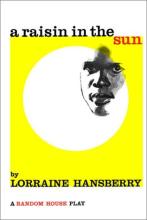
Lorraine Hansberry's award-winning drama about the hopes and aspirations of a struggling, working-class family living on the South Side of Chicago connected profoundly with the psyche of black America--and changed American theater forever. The play's title comes from a line in Langston Hughes's poem "Harlem," which warns that a dream deferred might "dry up/like a raisin in the sun."

A memoir from the Native American poet describes her youth with an abusive stepfather, becoming a single teen mom, and how she struggled to finally find inner peace and her creative voice.

Invisible Life is the story of a young man's coming of age. Law school, girlfriends, and career choices were all part of Raymond Tyler's life, but there were other, more terrifying issues for him to confront. Being black was tough enough, but Raymond was becoming more and more conscious of sexual feelings that he knew weren't "right." He was completely committed to Sela, his longtime girlfriend, but his attraction to Kelvin, whom he had met during his last year in law school, had become more than just a friendship. No matter how much he tried to suppress them, his feelings were deeply sexual.

Yuri Herrera does not simply write about the border between Mexico and the United States and those who cross it. He explores the crossings and translations people make in their minds and language as they move from one country to another, especially when there's no going back. Traversing this lonely territory is Makina, a young woman who knows only too well how to survive in a violent, macho world. Leaving behind her life in Mexico to search for her brother, she is smuggled into the USA carrying a pair of secret messages -- one from her mother and one from the Mexican underworld.

A journey into the mind of a remarkable thirteen-year-old Japanese boy with severe autism shares firsthand insights into a variety of experiences associated with the disorder, from behavioral traits and misconceptions to perceptions about the world.

Traces the unlikely friendship of a wealthy Afghan youth and a servant's son in a tale that spans the final days of Afghanistan's monarchy through the atrocities of the present day.

Farewell to Manzanar is the true story of one spirited Japanese-American family's attempt to survive the indignities of forced detention—and of a native-born American child who discovered what it was like to grow up behind barbed wire in the United States.

In a tower on the New Zealand sea lives Kerewin Holmes: part Maori, part European, asexual and aromantic, an artist estranged from her art, a woman in exile from her family. One night her solitude is disrupted by a visitor—a speechless, mercurial boy named Simon, who tries to steal from her and then repays her with his most precious possession.
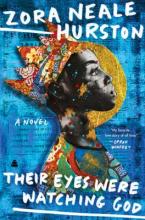
Fair and long-legged, independent and articulate, Janie Crawford sets out to be her own person -- no mean feat for a black woman in the '30s. Janie's quest for identity takes her through three marriages and into a journey back to her roots.

Hailsham seems like a pleasant English boarding school, far from the influences of the city. Its students are well tended and supported, trained in art and literature, and become just the sort of people the world wants them to be. But, curiously, they are taught nothing of the outside world and are allowed little contact with it.
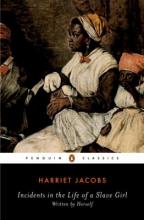
The true story of an individual's struggle for self-identity, self-preservation, and freedom, Incidents in the Life of a Slave Girl remains among the few extant slave narratives written by a woman. This autobiographical account chronicles the remarkable odyssey of Harriet Jacobs (1813–1897) whose dauntless spirit and faith carried her from a life of servitude and degradation in North Carolina to liberty and reunion with her children in the North.

When a plantation proprietor and former slave--now possessing slaves of his own--dies, his household falls apart in the wake of a slave rebellion and corrupt underpaid patrollers who enable free black people to be sold into slavery.

Newlyweds Celestial and Roy, the living embodiment of the New South, are settling into the routine of their life together when Roy is sent to prison for a crime he didn't commit. An insightful look into the lives of people who are bound and separated by forces beyond their control.

Reflecting the insights and intentions of the original work, this text includes one of the most detailed and compelling descriptions of the after-death state and practices that transform the experience of daily life and the process of dying.

In this autobiography, initially published in 1903, Helen Keller recalls her remarkable life as a blind and deaf woman taught to communicate by Ann Sullivan. Here among other memories, Keller describes her epiphany at the water pump when she connected the physical world with its linguistic counterpart. Keller was eventually educated at Radcliffe University, where she graduated with honors.

Lyrical, sardonic, and forthright, A Small Place magnifies our vision of one small place with Swiftian wit and precision. Jamaica Kincaid's expansive essay candidly appraises the ten-by-twelve-mile island in the British West Indies where she grew up, and makes palpable the impact of European colonization and tourism. The book is a missive to the traveler, whether American or European, who wants to escape the banality and corruption of some large place. Kincaid, eloquent and resolute, reminds us that the Antiguan people, formerly British subjects, are unable to escape the same drawbacks of their own tiny realm—that behind the benevolent Caribbean scenery are human lives, always complex and often fraught with injustice.

In "Letter from Birmingham Jail," Martin Luther King Jr. explains why Blacks can no longer be victims of inequality. Also features King's "I Have a Dream" speech, which was delivered to 250,000 civil rights marchers in 1963.

Based on the author's own experiences, this award-winning novel was the first to tell the story of the evacuation, relocation, and dispersal of Canadian citizens of Japanese ancestry during the Second World War.

This new edition of Tony Kushner's masterpiece is published with the author's recent changes and a new introduction in celebration of the twentieth anniversary of its original production. One of the most honored American plays in history, Angels in America was awarded two Tony Awards for Best Play and the Pulitzer Prize for Drama. It was made into an Emmy Award-winning HBO film directed by Mike Nichols. This two-part epic, subtitled 'A Gay Fantasia on National Themes, ' has received hundreds of performances worldwide in more than twenty-six languages.

Traveling from India to New England and back again, the stories in this debut collection unerringly chart the emotional journeys of characters seeking love beyond the barriers of nations and generations. Imbued with the sensual details of Indian culture, they also speak with universal eloquence to everyone who has ever felt like a foreigner. Like the interpreter of the title story - Lahiri translates between the strict traditions of her ancestors and the baffling New World.

In 1527, the conquistador Pánfilo de Narváez sailed from the port of Sanlúcar de Barrameda with a crew of six hundred men and nearly a hundred horses. His goal was to claim what is now the Gulf Coast of the United States for the Spanish crown and, in the process, become as wealthy and famous as Hernán Cortés.

Irene Redfield is a Black woman living an affluent, comfortable life with her husband and children in the thriving neighborhood of Harlem in the 1920s. When she reconnects with her childhood friend Clare Kendry, who is similarly light-skinned, Irene discovers that Clare has been passing for a white woman after severing ties to her past--even hiding the truth from her racist husband.

Overview: When Jenny Lawson was little, all she ever wanted was to fit in. That dream was cut short by her fantastically unbalanced father and a morbidly eccentric childhood. It did, however, open up an opportunity for Lawson to find the humor in the strange shame-spiral that is her life, and we are all the better for it. In the irreverent Let's Pretend This Never Happened, Lawson's long-suffering husband and sweet daughter help her uncover the surprising discovery that the most terribly human moments-the ones we want to pretend never happened-are the very same moments that make us the people we are today. For every intellectual misfit who thought they were the only ones to think the things that Lawson dares to say out loud, this is a poignant and hysterical look at the dark, disturbing, yet wonderful moments of our lives.

"Laymon writes ... about the physical manifestations of violence, grief, trauma, and abuse on his own body, [examining] his own eating disorder and gambling addiction as well as similar issues that run throughout his family. Through self-exploration, storytelling, and honest conversation with family and friends, Heavy seeks to bring what has been hidden into the light and to reckon with all of its myriad sources, from the most intimate--a mother-child relationship--to the most universal--a society that has undervalued and abused black bodies for centuries"-- Provided by publisher.
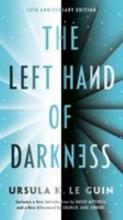
Le Guin's Hainish series begins with the assumption that centuries ago humanoids from the planet Hain ventured through the solar system establishing colonies on various planets including Earth. For mysterious reasons these colonies lose all contact and knowledge of each other until the 21st century when an attempt is made to establish a galactic league. Individual stories in this loosely organized series explore the inherent communication difficulties in the mingling and clash of cultures that, over the centuries of separation, have developed widely disparate social and political structures as well as a range of biological differences.

A new tour de force from the bestselling author of Free Food for Millionaires, for readers of The Kite Runner and Cutting for Stone. PACHINKO follows one Korean family through the generations, beginning in early 1900s Korea with Sunja, the prized daughter of a poor yet proud family, whose unplanned pregnancy threatens to shame them all. Deserted by her lover, Sunja is saved when a young tubercular minister offers to marry and bring her to Japan. So begins a sweeping saga of an exceptional family in exile from its homeland and caught in the indifferent arc of history. Through desperate struggles and hard-won triumphs, its members are bound together by deep roots as they face enduring questions of faith, family, and identity.

March is a vivid first-hand account of John Lewis' lifelong struggle for civil and human rights, meditating in the modern age on the distance traveled since the days of Jim Crow and segregation. Rooted in Lewis' personal story, it also reflects on the highs and lows of the broader civil rights movement. Book One spans John Lewis' youth in rural Alabama, his life-changing meeting with Martin Luther King, Jr., the birth of the Nashville Student Movement, and their battle to tear down segregation through nonviolent lunch counter sit-ins, building to a stunning climax on the steps of City Hall.

After the success of the Nashville sit-in campaign, John Lewis is more committed than ever to changing the world through nonviolence -- but as he and his fellow Freedom Riders board a bus into the vicious heart of the deep south, they will be tested like never before.

Welcome to the stunning conclusion of the award-winning and best-selling MARCH trilogy. Congressman John Lewis, an American icon and one of the key figures of the civil rights movement, joins co-writer Andrew Aydin and artist Nate Powell to bring the lessons of history to vivid life for a new generation, urgently relevant for today's world.

Everyone at Appleyard College for Young Ladies agreed it was just right for a picnic at Hanging Rock. After lunch, a group of three girls climbed into the blaze of the afternoon sun, pressing on through the scrub into the shadows of the secluded volcanic outcropping. Farther, higher, until at last they disappeared. They never returned. Mysterious and subtly erotic, Picnic at Hanging Rock inspired the iconic 1975 film of the same name by Peter Weir. A beguiling landmark of Australian literature.

Narrative epiphanies and interior monologue frame the life of Joana, from her middle-class childhood through her unhappy marriage and its dissolution to transcendence, when she proclaims: "I shall arise as strong and comely as a young colt."

The poet, Audre Lorde, depicts her life and examines the influence of various women on her development.

Structured around the forty questions Luiselli translates and asks undocumented Latin-American children facing deportation, Tell Me How It Ends (an expansion of her 2016 Freeman's essay of the same name) humanizes these young migrants and highlights the contradiction of the idea of America as a fiction for immigrants with the reality of racism and fear--both here and back home.

Najīb Maḥfūẓ's magnificent epic trilogy of colonial Egypt appears here in one volume for the first time. The Nobel Prize-winning writer's masterwork is the engrossing story of a Muslim family in Cairo during Britain's occupation of Egypt in the early decades of the twentieth century.

As recipient of the Nobel Peace Prize, president of the African National Congress, and head of the anti-apartheid movement, Nelson Mandela has been one of the world's great moral and political leaders. The story of his life - from the early development of his political consciousness to his eventful quarter century behind bars to his momentous victory in South Africa's first-ever multiracial elections - is an epic account of struggle, setback, renewed hope, and ultimate triumph.

Beryl Markham’s life story is a true epic. Not only did she set records and break barriers as a pilot, she shattered societal expectations, threw herself into torrid love affairs, survived desperate crash landings—and chronicled everything. A contemporary of Karen Blixen (better known as Isak Dinesen, the author of Out of Africa), Markham left an enduring memoir that soars with astounding candor and shimmering insights.

In this profound and courageous New York Times bestseller, Janet Mock establishes herself as a resounding and inspirational voice for the transgender community--and anyone fighting to define themselves on their own terms. With unflinching honesty and moving prose, Mock relays her experiences of growing up young, multiracial, poor, and trans in America, offering readers accessible language while imparting vital insight about the unique challenges and vulnerabilities of a marginalized and misunderstood population. Though undoubtedly an account of one woman's quest for self at all costs, Redefining Realness is a powerful vision of possibility and self-realization, pushing us all toward greater acceptance of one another--and of ourselves--showing as new before how to be unapologetic and real.

House Made of Dawn, which won the Pulitzer Prize in 1969, tells the story of a young American Indian named Abel, home from a foreign war and caught between two worlds: one his father's, wedding him to the rhythm of the seasons and the harsh beauty of the land; the other of industrial America, a goading him into a compulsive cycle of dissipation and disgust.

This groundbreaking collection reflects an uncompromised definition of feminism by women of color. Through personal essays, criticism, interviews, testimonials, poetry, and visual art, the collection explores, as coeditor Cherríe Moraga writes, “the complex confluence of identities—race, class, gender, and sexuality—systemic to women of color oppression and liberation.”

The Bluest Eye is Toni Morrison's first novel, a book heralded for its richness of language and boldness of vision. Set in the author's girlhood hometown of Lorain, Ohio, it tells the story of black, eleven-year-old Pecola Breedlove. Pecola prays for her eyes to turn blue so that she will be as beautiful and beloved as all the blond, blue-eyed children in America. In the autumn of 1941, the year the marigolds in the Breedloves' garden do not bloom. Pecola's life does change- in painful, devastating ways. What its vivid evocation of the fear and loneliness at the heart of a child's yearning, and the tragedy of its fulfillment. The Bluest Eye remains one of Toni Morrisons's most powerful, unforgettable novels- and a significant work of American fiction.

In Los Angeles of the late 1940s, Easy Rawlins, a black war veteran, has just been fired from his job at a defense plant. Easy is drinking in a friend's bar, wondering how he'll meet his mortgage, when a white man in a linen suit walks in, offering good money if Easy will simply locate Miss Daphne Monet, a blonde beauty known to frequent black jazz clubs.

The Wind-Up Bird Chronicle is many things: the story of a marriage that mysteriously collapses; a jeremiad against the superficiality of contemporary politics; an investigation of painfully suppressed memories of war; a bildungsroman about a compassionate young man's search for his own identity as well as that of his nation. All of Murakami's storytelling genius - combining elements of detective fiction, deadpan humor, and metaphysical truth, and swiftly transforming commonplace realism into surreal revelation - is on full, seamless display. And in turning his literary imagination loose on a broad social and political canvas, he bares nothing less than the soul of a country steeped in the violence of the twentieth century.

Murasaki Shikibu, born into the middle ranks of the aristocracy during the Heian Period (794-1185 CE), wrote The Tale of Genji--widely considered the world's first novel--during the early years of the eleventh century. Expansive, compelling, and sophisticated in its representation of ethical concerns and aesthetic ideals, Murasaki's tale came to occupy a central place in Japan's remarkable history of artistic achievement and is now recognized as a masterpiece of world literature.

I Am a Cat, satirizes the follies of upper-middle-class Japanese society during the Meiji era.

Follows a Viet Cong agent as he spies on a South Vietnamese army general and his compatriots as they start a new life in 1975 Los Angeles.

This book is about relatedness. Using a form of generative refusal towards western writing practices, the text works with the idea of kinship that derives from the author's Plains Cree and other kinship teachings. It also examines how queer kin were some of their first experiences of reciprocal relationality and care.
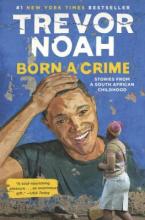
Born a Crime is the story of a mischievous young boy who grows into a restless young man as he struggles to find himself in a world where he was never supposed to exist. It is also the story of that young man’s relationship with his fearless, rebellious, and fervently religious mother—his teammate, a woman determined to save her son from the cycle of poverty, violence, and abuse that would ultimately threaten her own life.

Remembering childhood stories her grandfather once told her, young physician Natalia becomes convinced that he spent his last days searching for "the deathless man," a vagabond who claimed to be immortal. As Natalia struggles to understand why her grandfather, a deeply rational man would go on such a farfetched journey, she stumbles across a clue that leads her to the extraordinary story of the tiger's wife.

Ijeoma comes of age as her nation does; born before independence, she is eleven when civil war breaks out in the young republic of Nigeria. Sent away to safety, she meets another displaced child and they, star-crossed, fall in love. They are from different ethnic communities. They are also both girls. When their love is discovered, Ijeoma learns that she will have to hide this part of herself. But there is a cost to living inside a lie.

The narrator, Azaro, is an abiku, a spirit child, who in the Yoruba tradition of Nigeria exists between life and death. The life he foresees for himself and the tale he tells is full of sadness and tragedy, but inexplicably he is born with a smile on his face. Nearly called back to the land of the dead, he is resurrected. But in their efforts to save their child, Azaro's loving parents are made destitute. The tension between the land of the living, with its violence and political struggles, and the temptations of the carefree kingdom of the spirits propels this latter-day Lazarus's story.

Buddy Bolden, a New Orleans barber, cornet player, and full-time editor of a gossip sheet, disappears for two years, and when he returns, he goes berserk and spends his final years in the East Louisiana state hospital.

Twelve Native Americans came to the Big Oakland Powwow for different reasons. Jacquie Red Feather is newly sober and trying to make it back to the family she left behind in shame. Dene Oxedrene is pulling his life together after his uncle's death and has come to work the powwow and to honor his uncle's memory. Edwin Frank has come to find his true father. Bobby Big Medicine has come to drum the Grand Entry. Opal Viola Victoria Bear Shield has come to watch her nephew Orvil Red Feather; Orvil has taught himself Indian dance through YouTube videos, and he has come to the powwow to dance in public for the very first time. Tony Loneman is a young Native American boy whose future seems destined to be as bleak as his past, and he has come to the Powwow with darker intentions--intentions that will destroy the lives of everyone in his path. Tommy Orange delivers a wondrous and shattering portrait of an America few of us have ever seen. A multi-generational, relentlessly paced story about violence and recovery, hope and loss, identity and power, dislocation and communion, and the beauty and despair woven into the history of a nation and its people.

After years of political exile in Western Europe, Ka returns to Istanbul to attend his mother's funeral, where he learns of a series of bizarre events that have changed his childhood hometown and threaten its future.

The Street follows the spirited Lutie Johnson, a newly single mother whose efforts to claim a share of the American Dream for herself and her young son meet frustration at every turn in 1940s Harlem. Opening a fresh perspective on the realities and challenges of black, female, working-class life, The Street became the first novel by an African American woman to sell more than a million copies.

Connie Ramos, a Chicana woman in her mid-thirties, living in New York and labeled insane, committed to a mental institution, is able to communicate with the year 2137.

Esther Greenwood, a talented college student, finds herself estranged from her family and resigned to a conventional lifestyle and descends into depression and mental illness.

Asher Lev, born into a devout Jewish family and community, struggles to reconcile his burning need to create art with the restrictions and expectations placed on him by his faith and his people.

Set in the post-martial-law era of 1990s Taipei, Notes of a Crocodile depicts the coming-of-age of a group of queer misfits discovering love, friendship, and artistic affinity while hardly studying at Taiwan's most prestigious university. Told through the eyes of an anonymous lesbian narrator nicknamed Lazi, Qiu Miaojin's cult classic novel is a postmodern pastiche of diaries, vignettes, mash notes, aphorisms, exegesis, and satire by an incisive prose stylist and countercultural icon. Afflicted by her fatalistic attraction to Shui Ling, an older woman who is alternately hot and cold toward her, Lazi turns for support to a circle of friends that includes the devil-may-care, rich-kid-turned-criminal Meng Sheng and his troubled, self-destructive gay lover Chu Kuang, as well as the bored, mischievous overachiever Tun Tun and her alluring slacker artist girlfriend Zhi Rou. Bursting with the optimism of newfound liberation and romantic idealism despite corroding innocence, Notes of a Crocodile is a poignant and intimate masterpiece of social defiance by a singular voice in contemporary Chinese literature.

Inspired by, but independent of Charlotte Bronte·'s Jane Eyre, the author tells the story of the childhood and marriage of the first Mrs. Rochester, the West Indian Creole heiress who went insane in a haunting, intense, and tragic tropical world.

First published in 1890, Jacob Riis's remarkable study of the horrendous living conditions of the poor in New York City had an immediate and extraordinary impact on society, inspiring reforms that affected the lives of millions of people.

Latin America has seen, time and again, the rise of dictators, Supreme Leaders possessed of the dream of absolute power, who sought to impose their mad visions of Perfect Order on their own peoples. Latin American writers, in turn, have responded with fictional portraits of such figures, and no novel of this genre is as universally esteemed as Augusto Roa Bastos's I the Supreme, a book that draws on and reimagines the career of the man who was "elected" Supreme Dictator for Life in Paraguay in 1814.

Jack Sheppard and Edgeworth Bess were the most notorious thieves, jailbreakers, and lovers of eighteenth-century London. Yet no one knows the true story; their confessions have never been found. Until now. Reeling from heartbreak, a scholar named Dr. Voth discovers a long-lost manuscript--a gender-defying exposé of Jack and Bess's adventures. Dated 1724, the book depicts a London underworld where scamps and rogues clash with the city's newly established police force, queer subcultures thrive, and ominous threats of the Plague abound. Jack--a transgender carpenters apprentice--has fled his master's house to become a legendary prison-break artist, and Bess has escaped the draining of the fenlands to become a revolutionary. Is Confessions of the Fox an authentic autobiography or a hoax? Dr. Voth obsessively annotates the manuscript, desperate to find the answer. As he is drawn deeper into Jack and Bess's tale of underworld resistance and gender transformation, it becomes clear that their fates are intertwined--and only a miracle will save them all.

Armed only with the invincible innocence of children, they fashion a childhood for themselves in the shade of the wreck that is their family - their lonely, lovely mother, Ammu (who loves by night the man her children love by day), their blind grandmother, Mammachi (who plays Handel on her violin), their beloved uncle Chacko (Rhodes scholar, pickle baron, radical Marxist, bottom-pincher), their enemy, Baby Kochamma (ex-nun and incumbent grandaunt), and the ghost of an imperial entomologist's moth (with unusually dense dorsal tufts).

Barcelona, 1945: A city slowly heals from its war wounds, and Daniel, an antiquarian book dealer's son who mourns the loss of his mother, finds solace in a mysterious book entitled The Shadow of the Wind, by one Julian Carax. But when he sets out to find the author's other works, he makes a shocking discovery: someone has been systematically destroying every copy of every book Carax has written. In fact, Daniel may have the last of Carax's books in existence. Soon Daniel's seemingly innocent quest opens a door into one of Barcelona's darkest secrets--an epic story of murder, madness, and doomed love.

As one enters Juan Rulfo's legendary novel, one follows a dusty road to a town of death. Time shifts from one consciousness to another in a hypnotic flow of dreams, desires, and memories, a world of ghosts dominated by the figure of Pedro Páramo - lover, overlord, murderer.
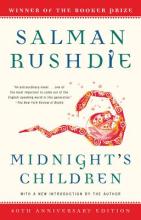
This novel is at once a fascinating family saga and an astonishing evocation of a vast land and its people–a brilliant incarnation of the universal human comedy. Twenty-five years after its publication, Midnight’ s Children stands apart as both an epochal work of fiction and a brilliant performance by one of the great literary voices of our time.

Often likened to Rigoberta Menchu and Nadine Gordimer, Nawal El Saadawi is one of the world's leading feminist authors. Director of Health and Education in Cairo, she was summarily dismissed from her post in 1972 for her political writing and activities. In 1981 she was imprisoned by Anwar Sadat for alleged "crimes against the State" and was not released until after his assassination. Memoirs from the Women's Prison offers both firsthand witness to women's resistance to state violence and fascinating insights into the formation of women's community. Saadawi describes how political prisoners, both secular intellectuals and Islamic revivalists, forged alliances to demand better conditions and to maintain their sanity in the confines of their cramped cell. Saadawi's haunting prose makes Memoirs an important work of twentieth-century literature. Recognized as a classic of prison writing, it touches all who are concerned with political oppression, intellectual freedom, and personal dignity.

After years of study in Europe, the young narrator of Season of Migration to the North returns to his village along the Nile in the Sudan. It is the 1960s, and he is eager to make a contribution to the new postcolonial life of his country. Back home, he discovers a stranger among the familiar faces of childhood—the enigmatic Mustafa Sa’eed. Mustafa takes the young man into his confidence, telling him the story of his own years in London, of his brilliant career as an economist, and of the series of fraught and deadly relationships with European women that led to a terrible public reckoning and his return to his native land.

Esmeralda Santiago's story begins in rural Puerto Rico, where her childhood was full of both tenderness and domestic strife, tropical sounds and sights as well as poverty. Growing up, she learned the proper way to eat a guava, the sound of tree frogs in the mango groves at night, the taste of the delectable sausage called morcilla, and the formula for ushering a dead baby's soul to heaven.

Sappho, the earliest and most famous Greek woman poet, sang her songs around 600 BCE on the island of Lesbos. Of the little that survives from the approximately nine papyrus scrolls collected in antiquity, all is translated here: substantial poems, fragments, single words - and, notably, five stanzas of a poem that came to light in 2014. Also included are new additions to five fragments from the latest discovery, and a nearly complete poem published in 2004. The power of Sappho's poetry - her direct style, rich imagery, and passion - is apparent even in these remnants.

Persepolis is the story of Marjane Satrapi's childhood and coming of age within a large and loving family in Tehran during the Islamic Revolution; of the contradictions between private life and public life in a country plagued by political upheaval; of her high school years in Vienna facing the trials of adolescence far from her family; of her homecoming -- both sweet and terrible; and, finally, of her self-imposed exile from her beloved homeland.

Vikram Seth's novel is, at its core, a love story: Lata and her mother, Mrs. Rupa Mehra, are both trying to find—through love or through exacting maternal appraisal—a suitable boy for Lata to marry. Set in the early 1950s, in an India newly independent and struggling through a time of crisis, A Suitable Boy takes us into the richly imagined world of four large extended families and spins a compulsively readable tale of their lives and loves. A sweeping panoramic portrait of a complex, multiethnic society in flux, A Suitable Boy remains the story of ordinary people caught up in a web of love and ambition, humor and sadness, prejudice and reconciliation, the most delicate social etiquette and the most appalling violence.

Peri, a married, wealthy, beautiful Turkish woman, is on her way to a dinner party at a seaside mansion in Istanbul when a beggar snatches her handbag. As she wrestles to get it back, a photograph falls to the ground -- an old polaroid of three young women and their university professor. A relic from a past -- and a love -- Peri had tried desperately to forget. Three Daughters of Eve is set over an evening in contemporary Istanbul, as Peri arrives at the party and navigates the tensions that simmer in this crossroads country between East and West, religious and secular, rich and poor. Over the course of the dinner, and amidst an opulence that is surely ill-begotten, terrorist attacks occur across the city.
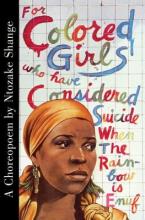
From its inception in California in 1974 to its Broadway revival in 2022, the Obie Award–winning for colored girls who have considered suicide/when the rainbow is enuf has excited, inspired, and transformed audiences all over the country for nearly fifty years. Passionate and fearless, Shange’s words reveal what it meant to be a woman of color in the 20th century. First published in 1975, when it was praised by The New Yorker for “encompassing…every feeling and experience a woman has ever had,” for colored girls who have considered suicide/when the rainbow is enuf will be read and performed for generations to come. Now with new introductions by Jesmyn Ward and Broadway director Camille A. Brown, and one poem not included in the original, here is the complete text of a groundbreaking dramatic prose poem that resonates with unusual beauty in its fierce message to the world.

By the time Rock Hudson's death in 1985 alerted all America to the danger of the AIDS epidemic, the disease had spread across the nation, killing thousands of people and emerging as the greatest health crisis of the 20th century. America faced a troubling question: What happened? How was this epidemic allowed to spread so far before it was taken seriously? In answering these questions, Shilts weaves the disparate threads into a coherent story, pinning down every evasion and contradiction at the highest levels of the medical, political, and media establishments.

This story, set on an Indian reservation just after World War II, concerns the return home of a war-weary Navaho young man. Tayo, a young Native American, has been a prisoner of the Japanese during World War II, and the horrors of captivity have almost eroded his will to survive. His return to the Laguna Pueblo reservation only increases his feeling of estrangement and alienation. While other returning soldiers find easy refuge in alcohol and senseless violence, Tayo searches for another kind of comfort and resolution. Tayo's quest leads him back to the Indian past and its traditions, to beliefs about witchcraft and evil, and to the ancient stories of his people. The search itself becomes a ritual, a curative ceremony that defeats the most virulent of afflictions-despair. "Demanding but confident and beautifully written" (Boston Globe), this is the story of a young Native American returning to his reservation after surviving the horrors of captivity as a prisoner of the Japanese during World War II. Drawn to his Indian past and its traditions, his search for comfort and resolution becomes a ritual--a curative ceremony that defeats his despair.

Her name was Henrietta Lacks, but scientists know her as HeLa. She was a poor Southern tobacco farmer, yet her cells--taken without her knowledge--became one of the most important tools in medicine. The first "immortal" human cells grown in culture, they are still alive today, though she has been dead for more than sixty years. HeLa cells were vital for developing the polio vaccine; uncovered secrets of cancer and viruses; helped lead to in vitro fertilization, cloning, and gene mapping; and have been bought and sold by the billions. Yet Henrietta Lacks is buried in an unmarked grave. Her family did not learn of her "immortality" until more than twenty years after her death, when scientists began using her husband and children in research without informed consent. The story of the Lacks family is inextricably connected to the dark history of experimentation on African Americans, the birth of bioethics, and the legal battles over whether we control the stuff we are made of.

At the center of this invigorating novel are two unlikely friends, Archie Jones and Samad Iqbal. Hapless veterans of World War II, Archie and Samad and their families become agents of England’s irrevocable transformation. A second marriage to Clara Bowden, a beautiful, albeit tooth-challenged, Jamaican half his age, quite literally gives Archie a second lease on life, and produces Irie, a knowing child whose personality doesn’t quite match her name (Jamaican for “no problem”). Samad’s late-in-life arranged marriage (he had to wait for his bride to be born), produces twin sons whose separate paths confound Iqbal’s every effort to direct them, and a renewed, if selective, submission to his Islamic faith.

The author offers a look at depression in which he draws on his own battle with the illness and interviews with fellow sufferers, researchers, doctors, and others to assess the complexities of the disease, its causes and symptoms, and available therapies. This book examines depression in personal, cultural, and scientific terms. He confronts the challenge of defining the illness and describes the vast range of available medications, the efficacy of alternative treatments, and the impact the malady has on various demographic populations, around the world and throughout history. He also explores the thorny patch of moral and ethical questions posed by emerging biological explanations for mental illness. He takes readers on a journey into the most pervasive of family secrets and contributes to our understanding not only of mental illness but also of the human condition.

A rich, amusing autobiography of the childhood of the internationally acclaimed Nigerian playwright, poet, novelist, and literary critic Wole Soyinka.

Maus is a haunting tale within a tale. Vladek's harrowing story of survival is woven into the author's account of his tortured relationship with his aging father. Against the backdrop of guilt brought by survival, they stage a normal life of small arguments and unhappy visits.

When it was first published in 1928, Luther Standing Bear's autobiographical account of his tribe and tribesmen was hailed by Van Wyck Brooks as “one of the most engaging and veracious we have ever had.” It remains a landmark in Indian literature, among the first books about Indians written from the Indian point of view by an Indian. Born in the 1860s, the son of a Lakota chief, Standing Bear was in the first class at Carlisle Indian School, witnessed the Ghost Dance uprising from the Pine Ridge Reservation, toured Europe with Buffalo Bill's Wild West show, and devoted his later years to the Indian rights movement of the 1920s and 1930s.

Just Mercy tells the story of the Equal Justice Initiative, from the early days with a small staff facing the nation’s highest death sentencing and execution rates, through a successful campaign to challenge the cruel practice of sentencing children to die in prison, to revolutionary projects designed to confront Americans with our history of racial injustice.

The author describes his experiences with depression and his resulting suicidal tendencies beginning in 1985.

Gathers more than one hundred poems that deal with the pleasures and pains of life's experiences by the Nobel Prize-winning Indian poet.

First published in 1923, Jean Toomer's Cane is an innovative literary work part drama, part poetry, part fiction powerfully evoking black life in the South. Rich in imagery, Toomer's impressionistic, sometimes surrealistic sketches of Southern rural and urban life are permeated by visions of smoke, sugarcane, dusk, and fire; the northern world is pictured as a harsher reality of asphalt streets. This iconic work of American literature is published with a new afterword by Rudolph Byrd of Emory University and Henry Louis Gates Jr. of Harvard University, who provide groundbreaking biographical information on Toomer, place his writing within the context of American modernism and the Harlem Renaissance, and examine his shifting claims about his own race and his pioneering critique of race as a scientific or biological concept.

An account of "twenty-six men who in May 2001 attempted to cross the Mexican border into the desert of southern Arizona, through the deadly region known as the Devil's Highway ... Only twelve of the men made it out."--Back cover.

Nineteen-year-old Nayeli works at a taco shop in her Mexican village and dreams about her father, who journeyed to the United States to find work. Recently, it has dawned on her that he isn't the only man who has left town. In fact, there are almost no men in the village--they've all gone north. While watching The Magnificent Seven, Nayeli decides to go north herself and recruit seven men--her own "Siete Magníficos"--to repopulate her hometown and protect it from the bandidos who plan on taking it over.

From Hida Viloria, writer and intersex activist, a candid, provocative, and eye-opening memoir of life, love, and gender identity as an intact intersex person, as well as a call to action for justice for intersex people. Hida Viloria was raised as a girl but discovered early on that he/r body was different. Unlike most people who are born intersex in the first world--meaning they have genitals, reproductive organs, hormones, and/or chromosomal patterns that do not fit standard definitions of male or female--Hida had the freedom to explore the person s/he was born to be because he/r parents did not agree to have he/r sex characteristics surgically altered at birth. It wasn't until s/he was 26 and encountered the term "intersex" in a San Francisco newspaper that s/he finally had a name for he/r difference. That's when s/he began to explore what it means to live in the space between genders--to be both and neither. As s/he began to reach out to others like he/r, however, Hida discovered that most intersex people had been scarred, both physically and psychologically, by infant surgeries and hormone treatments meant to "correct" their bodies. Eager to help end this practice, Hida came out as intersex at a national and then international level. By answering the question "Are you a boy or a girl?" with "I'm both," Hida's helped blaze a trail for people--particularly intersex and genderqueer/non-binary people--to celebrate the middle space where male and female are not separate and opposite but entwined. Born Both is an intimate and powerful account of Hida's search for authentic identity and love in a world that insists on categorizing people into either/or.

The Mahabharata, an ancient and vast Sanskrit poem, is a remarkable collection of epics, legends, romances, theology, and ethical and metaphysical doctrine. The core of this great work is the epic struggle between five heroic brothers, the Pandavas, and their one hundred contentious cousins for rule of the land.

Ward takes James Baldwin's 1963 examination of race in America, The Fire Next Time, as a jumping off point for this collection of essays and poems about race from voices of her generation and our time.

Schizophrenia is not a single unifying diagnosis, and Esmé Weijun Wang writes not just to her fellow members of the 'collected schizophrenias' but to those who wish to understand it as well. Opening with the journey toward her diagnosis of schizoaffective disorder, Wang discusses the medical community's own disagreement about labels and procedures for diagnosing those with mental illness, and then follows an arc that examines the manifestations of schizophrenia in her life. In essays that range from using fashion to present as high-functioning to the depths of a rare form of psychosis, and from the failures of the higher education system and the dangers of institutionalization to the complexity of compounding factors such as PTSD and Lyme disease, Wang's analytical eye, honed as a former lab researcher at Stanford, allows her to balance research with personal narrative.

In five years, Jesmyn Ward lost five men in her life, to drugs, accidents, suicide, and the bad luck that can follow people who live in poverty, particularly black men. Dealing with these losses, one after another, made Jesmyn ask the question: why? And as she began to write about the experience of living through all the dying, she realized the truth--and it took her breath away. Her brother and her friends all died because of who they were and where they were from, because they lived with a history of racism and economic struggle that fostered drug addiction and the dissolution of family and relationships. Jesmyn says the answer was so obvious she felt stupid for not seeing it. But it nagged at her until she knew she had to write about her community, to write their stories and her own.

Ida B. Wells (1862-1931) was one of the foremost crusaders against Black oppression. This engaging memoir tells of her private life as mother of a growing family as well as her public activities as teacher, lecturer, and journalist in her fight against attitudes and laws oppressing Blacks.

The Living Is Easy, Dorothy West's first novel and one of only a handful of novels published by women during the Harlem Renaissance, tells the story of Cleo Judson, daughter of Southern sharecroppers, who is determined to integrate into Boston's black elite. Married to the "Black Banana King" Bart Judson, Cleo maneuvers her three sisters and their children-but not their husbands-into living with her, attempting to recreate her original family in a Bostonian mansion. With a new foreword by Morgan Jerkins, The Living Is Easy is a classic of American literature.

Cora is a slave on a cotton plantation in Georgia. When Caesar, a recent arrival from Virginia, tells her about the Underground Railroad, they decide to take a terrifying risk and escape. Though they manage to find a station and head north, they are being hunted. Their first stop is South Carolina, in a city that initially seems like a haven. But the city's placid surface masks an insidious scheme designed for its black denizens. And even worse: Ridgeway, the relentless slave catcher, is close on their heels.

In this historic moment of transgender visibility in the U.S., writer, activist, and public health consultant Willy Wilkinson's Born on the Edge of Race and Gender: A Voice for Cultural Competency uses the power of storytelling to contextualize one of the most misunderstood social issues of our time. This poetic, journalistic memoir shines an intersectional beacon on the ambiguity and complexity of mixed heritage, transgender, and disability experience, and offers an intimate window into how current legislative and policy battles impact the lives of transgender people. Whether navigating the men's locker room like a "stealth trans Houdini," accessing lifesaving health care, or appreciating his son's recognition of him as a "transformer," Wilkinson compellingly illustrates the unique, difficult, and sometimes comical experiences of transgender life.

Written on the Body is a love story. And it is, like all Winterson novels, a philosophical meditation, this time on the body: the body as physical phenomenon - blood and bones and organs - and the body as repository of our emotions and souls. The object is a married woman named Louise, and the narrator of the story is her lover, gender undeclared. At once ambiguous and riveting, the narrator's consciousness powers the reader beyond the need to identify its sex, and directly into love itself.

After two separate catastrophes, two very different families leave the country for the bright lights of Perth. The Lambs are industrious, united, and--until God seems to turn His back on their boy Fish--religious. The Pickleses are gamblers, boozers, fractious, and unlikely landlords. Change, hardship, and the war force them to swallow their dignity and share a great, breathing, shuddering house called Cloudstreet. Over the next twenty years, they struggle and strive, laugh and curse, come apart and pull together under the same roof, and try as they can to make their lives. Winner of the Miles Franklin Award and recognized as one of the greatest works of Australian literature, Cloudstreet is Tim Winton's sprawling, comic epic about luck and love, fortitude and forgiveness, and the magic of the everyday.

Orlando doubles as first an Elizabethan nobleman and then as a Victorian heroine who undergoes all the transitions of history in this novel that examines sex roles and social mores.

The Black leader discusses his political philosophy and reveals details of his life, shedding light on the ideas that enabled him to gain the allegiance of a still growing percentage of the Black population.

Alternates three interrelated stories about the problems of young Chinese Americans trying to participate in the popular culture. Presented in comic book format.

Eileen Chang is one of the great writers of twentieth-century China, where she enjoys a passionate following both on the mainland and in Taiwan. At the heart of Chang's achievement is her short fiction—tales of love, longing, and the shifting and endlessly treacherous shoals of family life. Written when Chang was still in her twenties, these extraordinary stories combine an unsettled, probing, utterly contemporary sensibility, keenly alert to sexual politics and psychological ambiguity, with an intense lyricism that echoes the classics of Chinese literature. Love in a Fallen City, the first collection in English of this dazzling body of work, introduces American readers to the stark and glamorous vision of a modern master.